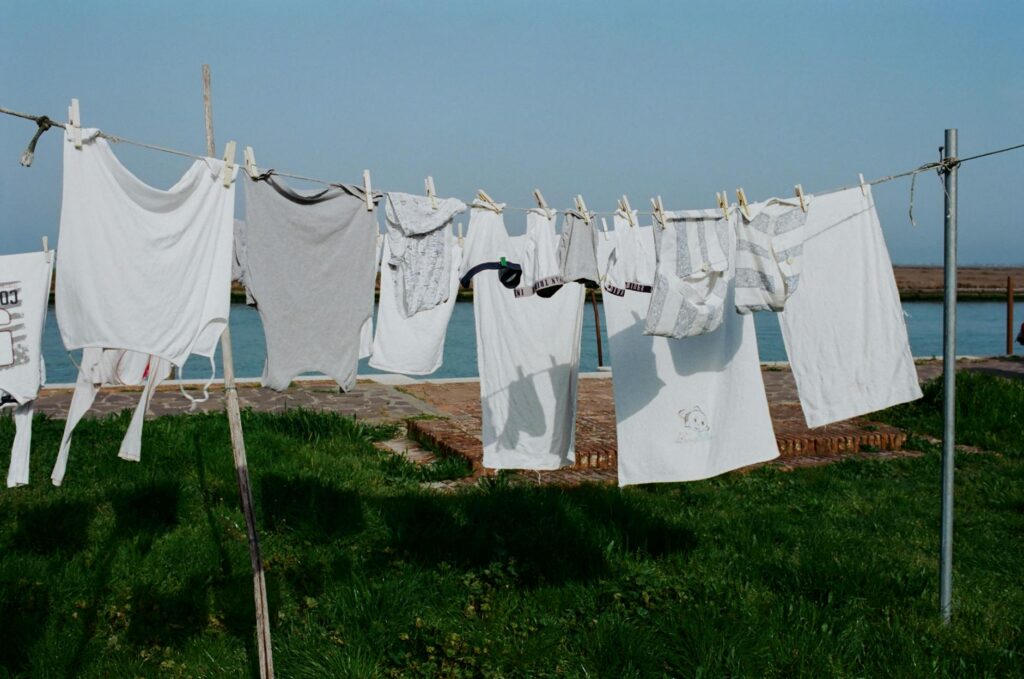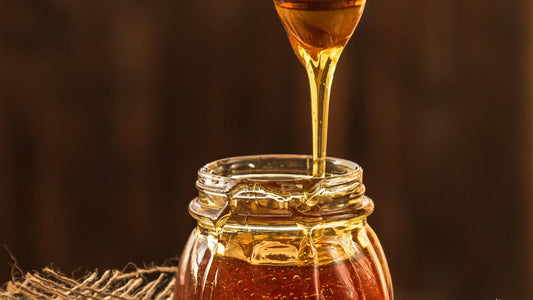
Top 10 Sustainability Tips for Summer
Share
Whether you love or hate summer, due to the scorching heat, it is here. When the temperature rises and the sun shines brighter, it's important to stay cool but also think of our planet. Yet, our actions do not have to be extravagant and can be as simple as switching a small product with an eco-conscious one. Take a look at these 10 Sustainability Tips for Summer that can help reduce waste, conserve energy, and decrease your carbon footprint.
No matter if you are travelling, hosting a barbecue or living your routine life, there are plenty of ways to enjoy yourself while still being eco-conscious.

Buy a Reusable Water Bottle
Yes, the first thing that you can do to have a sustainable summer is as easy as that. Buy a water bottle, but not a single-use one; a reusable and long-lasting one. A metallic or glass bottle would be the best option. According to UNEP, one million plastic bottles are sold out every minute. We all know where that ends up, right? Right in the oceans and landfills, thus choking our planet with plastic. A switch as simple as this can have a huge impact and will also save you money as you do not have to buy one every once in a while. Out of all the sustainability tips, this one is the easiest to practise.
What's better than a reusable steel bottle made with 90% recycled stainless steel and free of harmful BPA? This Stainless Steel Drinking Bottle from Less to Zero is perfect for daily or adventure takeaways.

Use an Eco-Friendly Sunscreen
Saving your skin from harmful ultraviolet radiation is a must whether you are indoors or outdoors. A good sunscreen is not only great for your skin but also protects from cancer and melanoma. But how sure are you that it is not killing the corals or harming the environment? Not so sure, right? Well, you can be by choosing a sustainable and nontoxic alternative that is not just great for your skin but also does not harm the skin.

To give you an insight, main constituents like oxybenzone and octinoxate convert UV rays into harmless heat on human skin. But once they reach the water, they bleach the corals and alter their DNA. In response to this, the island country Palau became the first to have banned 10 toxic chemicals that kill the corals. Mineral-based sunscreens have ingredients like zinc oxide or titanium dioxide, which are much safer for the environment.
Use Sustainable Ways of Cooling
We know summers can be really harsh, especially with climate change and heat waves. Most of us prefer to use air conditioners at the lowest preferable temperatures to fight the temperatures off. However, using too much air conditioning is not a sustainable way to deal with the rising temperature. ACs take up more than 10% of global electricity and release harmful gases like hydrofluorocarbon (HFCs) into the environment.

Instead, there are sustainable alternatives that are much cheaper and nearly as effective. You can use fans or air coolers to ventilate your house better. If the temperature is high enough, you can open the windows in the evening and let the breeze pass through, cooling your house naturally. These sustainability tips for efficient energy use can really make a big difference.
Make Use of Natural Energy and Say Hello to the Sun
Now, maybe you live in a noisy area or somewhere that has less natural light, or maybe you are a night owl. We get it. These are good enough reasons to use artificial lighting to get the work done. However, if you can make the most of your day and utilise the natural lighting to your advantage. Natural sunlight is abundant, more illuminated and cost-free. Plus, it comes with the benefits of vitamin D. If you still need to use artificial lighting, you can use a better energy-efficient system such as LED bulbs. Generally, an LED light uses just 10 watts of electricity. They eat up less energy and even last longer.

Instead of using your washing machine dryer, make the sun work. Dry your clothes in natural daylight, and you will get bacteria-free and odourless laundry. If your clothes are delicate, you can air dry them in the shade. Plus, if you wash your clothes in the evening, your place will not be overheated. Most importantly, when not in use, unplug your devices such as laptops, computers, smartphone chargers, etc.
What's better than gaining electricity directly from the Sun? This Photovoltaic System Plug & Play from Kleines Kraftwerk minimise dependency on fossil fuels. They can be used on your place's roof, wall, balcony, or even in the garden space. For Green Cloud Nine followers, they are offering a 10% discount using the code “Kraftwerk10”. So hurry up!

Try to Save Some Water
The fifth of our sustainability tips is about conserving water as much as possible. Now, this is a no-brainer; saving water is a sustainable practice not just for summers but all seasons. Apart from buying a reusable water bottle, there are other factors to consider, too. When the summer hits, water usage rises sharply. While we have only 2.5% of freshwater to use, yet we consume 10 billion tons on a daily basis globally.
The blue planet is short of fresh water, and it is time for us to do something about it. Since bathing is more frequent in the summer, You could take quick showers. If there are any leakages, you need to find a solution promptly. If you have a garden, water the plants in the evening and avoid overwatering as it not only wastes water but can also rot the plant roots. Since the spring is going to hit soon, you could also consider having a rainwater harvesting system if you do not already have one.
If you want to have an efficient solution for growing plants that saves water and time, you may want to get a smart gardening system. This Smart Indoor Gardening - SmartGrow Life from Bosch uses a hydroponic system, which uses very little water and energy-efficient LED lights.

Wear Ethical and Sustainable Clothing
Eco-friendly clothing is yet another way to support sustainability. Ethical and eco-friendly brands produce clothing that is manufactured with a social factor in mind, not just the environment. But, wait, wait, wait. Before buying that new ethical pair, consider this. The most sustainable clothing is the one that you already have. This is the most basic yet highly effective out of all sustainability tips. Yes, if you do not actually need new clothes, instead of spending those bucks, make use of your existing apparel to the fullest. However, when you need some change, you can go for materials such as natural cotton, linen, hemp, etc. Shop second-hand if you can.
Since summer is here, it's going to be a playful time for both adults and children. You can indulge in the beauty of colours with the Play cloth organic cotton 115 x 105 cm by Hans Natur. You can gift these to your kids or your loved ones and even use them as a scarf to protect your skin from suntan.

Use Non-Toxic and Natural Products
When we use naturally produced, non-toxic products, we are actually doing a lot of good not just for our environment but also for our skin, body, and overall health. Did you know that using toxic makeup and skincare products can lead to the development of cancers, hormonal imbalances, fertility issues and skin conditions such as asthma, eczema or dermatitis?
They can also destroy the protective layer of ozone in the Earth’s atmosphere. Parabens are the most commonly used products in shampoos, creams, conditioners, moisturizers, deodorants, and other products. This summer, it is about time that we switch to better, non-toxic, and natural products that are good for both our health and the environment in which we live.
You probably know that Aloe vera gel can stimulate skin growth and repair. And what's better if you can use it daily, not just for your skin but also for your hair and scalp? This Aloe Vera Gel by Supplementa has 98% pure leaf juice and natural ingredients.

Buy Local Food or Make You Own Produce
The best way to make sure that you are eating organics is to grow them on your own. This summer, grow some harvest so you will have a better grasp of what and how to grow this spring when the soil is full of water.

When you grow your own food, you will save money and reduce your carbon footprint while also learning a life skill. This Herbs Seeds Collection from Samen has a package of dill, basil, and peppermint ready to bring their flavour to your space.
If it is not feasible for you, you can also opt to buy organic food for the betterment of your health and the Earth. You can buy seasonal food locally from the farmer’s market to free yourself from the cost (carbon footprint) the environment has to pay for the excessive transportation of food and grains. Even if you buy locally sourced food, it is still good to have at least something small at home. Here is an idea...

You can harvest fresh, nutritious cress from your window sill in just a few days. Grow your own cress sprouts with these Organic Cress Seeds from Sonnentor to minimise your environmental impact.
Try More Vegetarian or Vegan Food
Now I am not trying to say that you should just ditch your regular meal and turn a vegetarian/vegan. But if you are trying to be a more sustainable individual, you must know this.
Beef production releases 250 times more greenhouse gas per gram of protein compared to legumes like beans or peanuts.
The World Counts
This shows the significant impact that meat, in particular beef, has on global warming. So this time, when you plan a barbeque, maybe you could go for some veg options like tamarind squash, fluffy pitas or vegan burgers.

If you do not want to leave your delicious regular meals, try to consume only veg or vegan items at least once a week. This would significantly affect your long-term health and would do nature some good. Plus, it is also more ethical and animal-friendly. Don't miss to check out some vegan recipes here.
Commute in a Sustainable Way
We can not conclude our sustainability tips without talking about this one. While most of us prefer the easiest and most comfortable ways of travelling, commuting sustainably doesn’t have to be that hard. The Transport Sector accounts for the second most consumption of global energy (~25%) after the Industrial Sector.

This summer, when you travel or go out for some fun, consider biking, walking, carpooling or taking up public transit like the local bus or metro. Trains are not as harmful as aeroplanes because they do not directly emit harmful gases into the upper atmosphere. This way, you can reduce your reliance on fossil fuels and travel in a way that has a lower carbon footprint.
Excited for a summer filled with eco-friendly choices?
So, what do you think? It's not hard to make eco-friendly choices in the summer, right? By adding these 10 sustainability tips to your daily life, you can enjoy the season while making a positive impact on the planet. Get ready for a green summer ahead!

Hi, I am Jahnvi Vyas. I have a Master’s in environmental science and my love for nature inspires me to be a more sustainable person. I am also an editor with a passion for graphics and video editing trying to learn new things.




